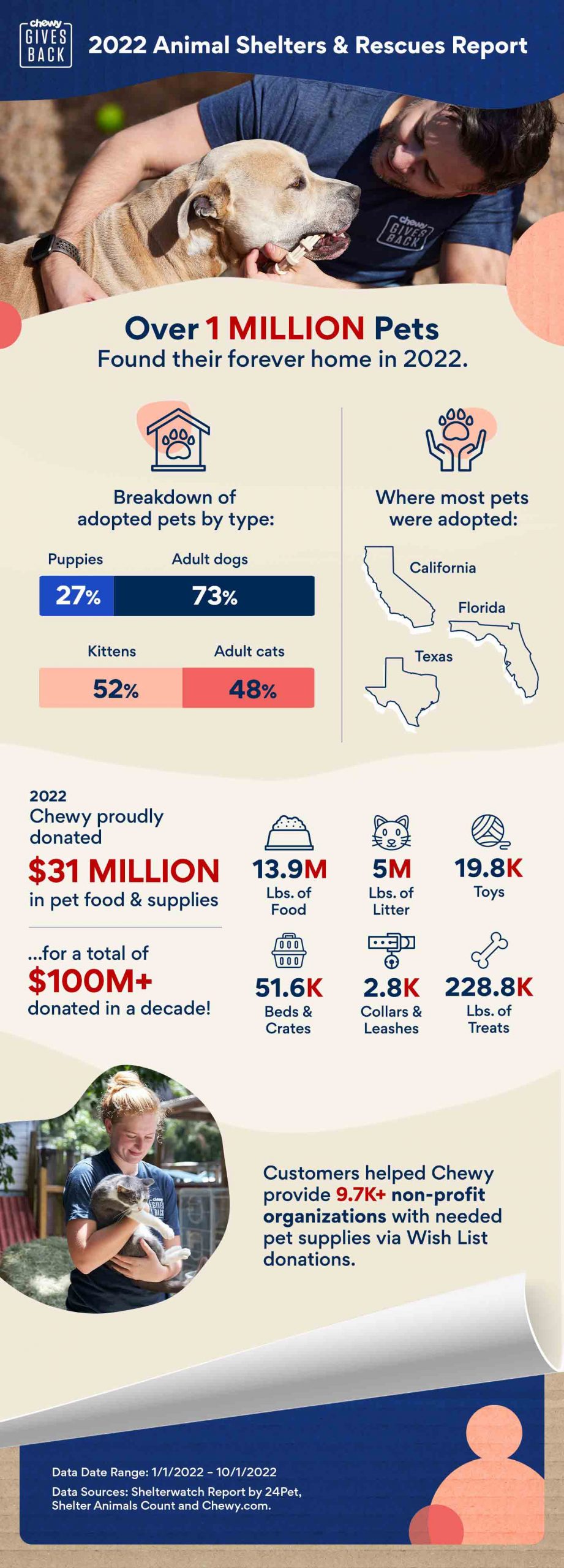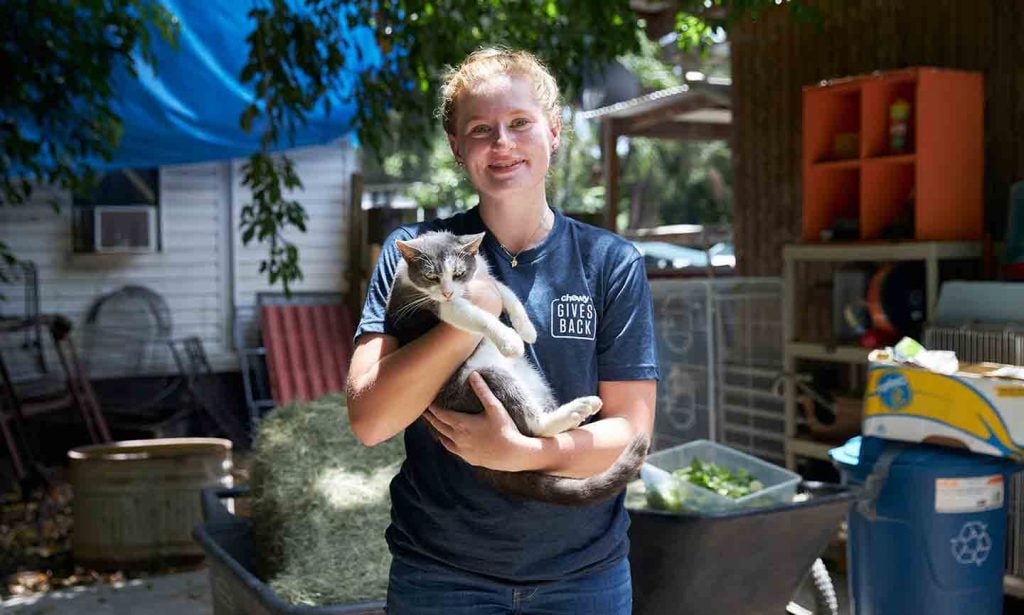Pet lovers, you really stepped up this year. You brought over 1 million pets out of shelters and rescues and into your homes in 2022, giving them the love they need and deserve—and removing them from the risks of homelessness.
“It was a banner year for life-saving,” says Julie Castle, CEO of Best Friends Animal Society, a nonprofit animal welfare organization with a network of shelters and rescues across the U.S.
Adoptions dropped in 2020, Castle says (thanks, pandemic), but began to rebound in 2021—and this year, they've continued to rise. That’s not the only good news: Adoptions of adult dogs and adult cats, who are traditionally overlooked in favor of puppies and kittens, are also on the rise.
“When I first started in this field, [finding homes for older pets] was a big hurdle,” Castle says. “Now, people are really welcoming those types of animals into their homes.” That might be because people are waking up to the benefits of older pets, she says, many of whom are already well-behaved and potty trained prior to their adoption.
“Having a puppy or a kitten can be a lot like having a human baby—and that’s really hard!” she points out. “To me, adopting an older pet just makes sense.”

While there’s plenty to celebrate for shelters and rescues, there’s still plenty of work to be done. Adoption numbers still haven’t returned to pre-pandemic levels. (Contrary to popular belief, adoptions actually dropped during the pandemic, due to decreased shelter operations and fewer animals being admitted into shelters, Castle says.) Plus, the recent economic downswing has left some families without the means to care for their pets, which has led to an increase in pet surrenders to shelters and rescues. All of that has led to overcrowding and increased strain on staff.
So, what can you do to help? The number one thing most rescues need, Castle says, is foster volunteers. When you take a pet into your home, it frees up space at the rescue for another animal, she points out. Plus, fostering can be easy, especially with cats.
“I always say, if you have a spare bathroom, you can save a life,” Castle says. Cats tend to prefer having their own enclosed area as they acclimate to a new environment, which makes a space like a bathroom perfect for them—and simple for their foster parents, too. “You can host a cat for 2 or 3 weeks, and it’s a very containable, easy thing,” Castle says.
Not able to foster? There are so many other ways to help. Rescues need volunteers now more than ever, Castle says, and not just for cleaning cages.
“Virtually every skill set can be used for a rescue group or a shelter—data management, marketing, photography, accounting, customer service,” she says. “Any skill can be used to help a shelter because right now they’re so incredibly short staffed.” Many shelters even have "field trip" programs that let you take dogs out of the shelter for fun experiences (or just one-on-one snuggles with you) for the day.
Another way to support your local rescue? Donate the things they need to stay in business. “A lot of shelter and rescue groups are working from a shoestring budget,” Castle says. “If you have a few spare dollars in your wallet, or even can make a monthly commitment, it goes such a long way.”
So let’s keep the good news coming—join us in supporting your local shelters and rescues, and we’ll look forward to celebrating even more shelter and rescue wins next year!
Rescue Support Made Easy
Donate using Wish List, and Chewy will send the supplies your neighborhood pet organization needs right to their doorstep. Find your local shelter or rescue here.
More Animal Shelter Success Stories
Share:











